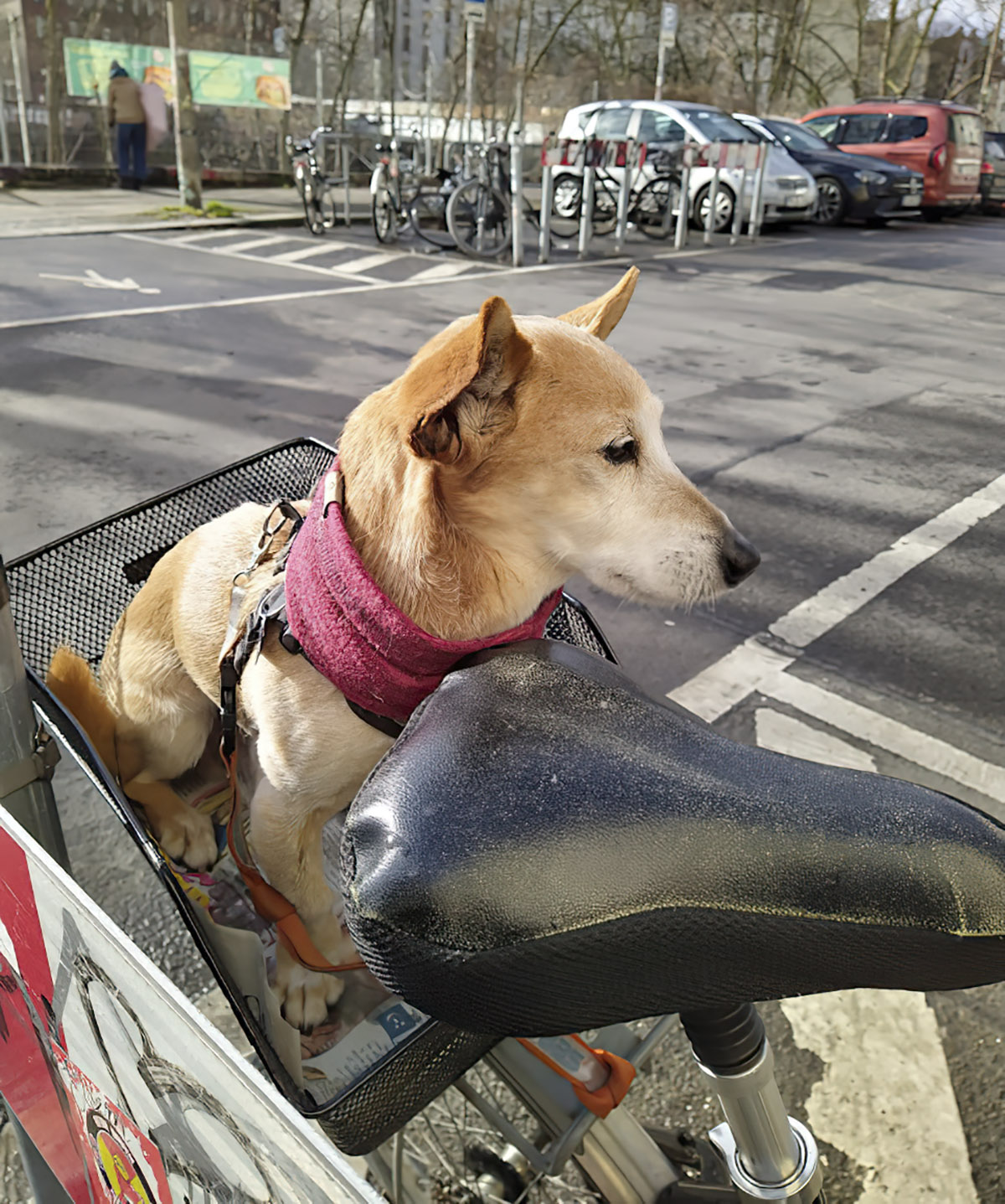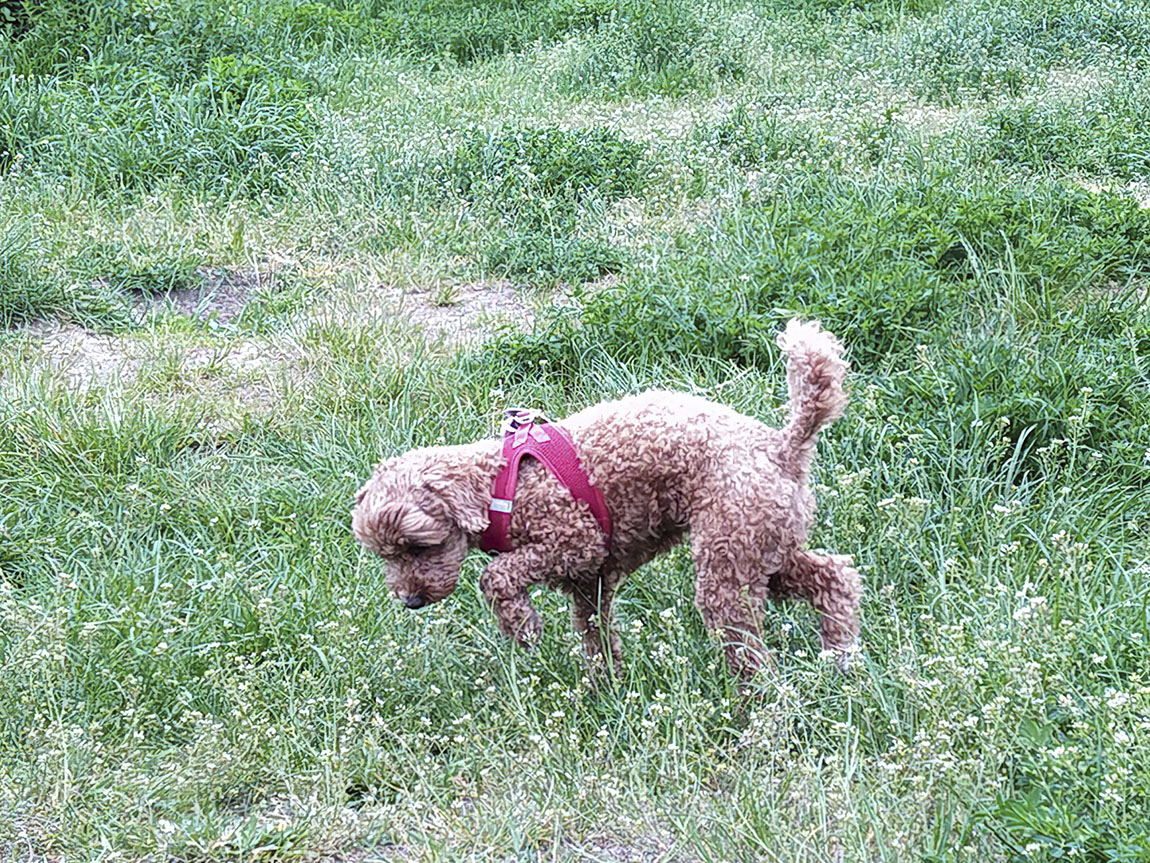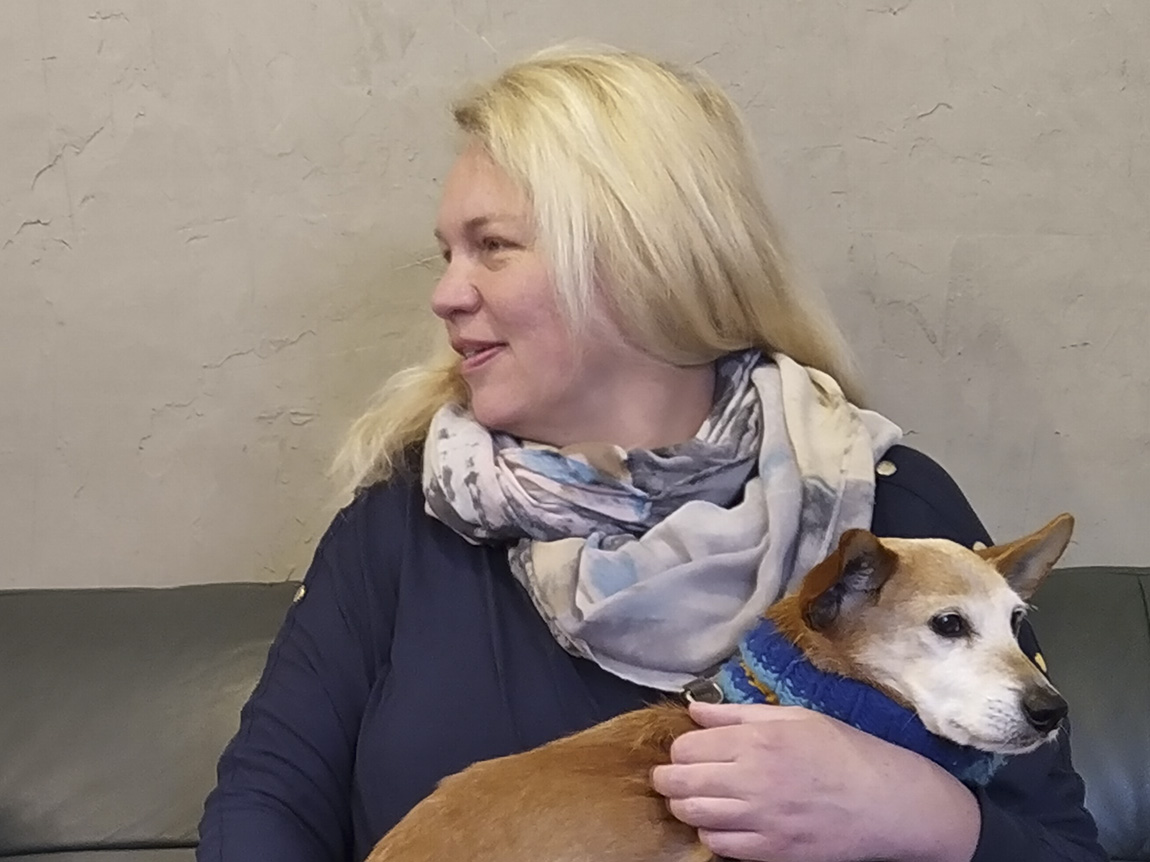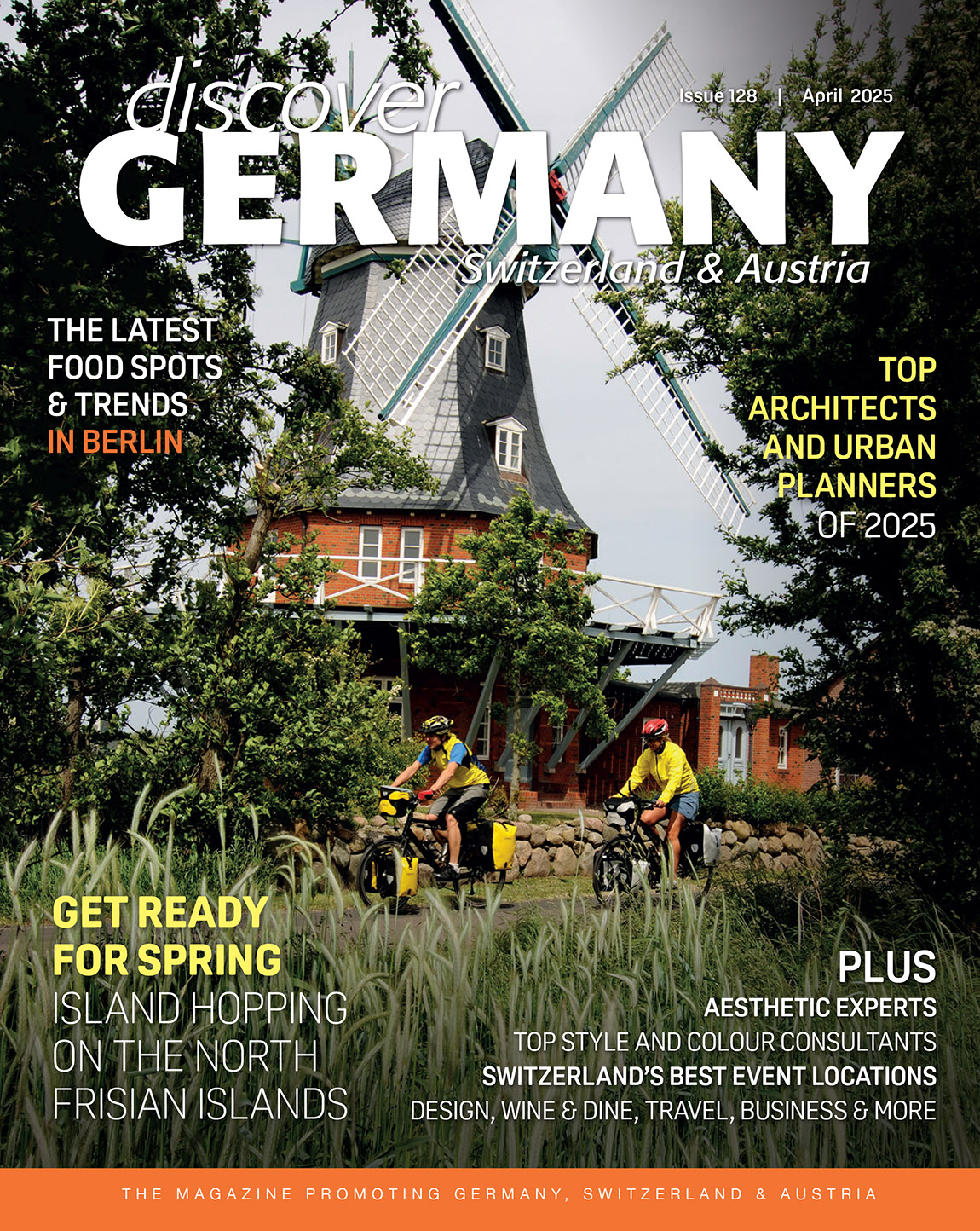Cornelia Brelowski: Share of the dog
TEXT & PHOTOS: CORNELIA BRELOWSKI

Berlin dogs are seasoned co-cyclists.
The increasing number of Berlin’s four-legged citizens is the root of new models of ownership and communication.
Come summer, Berliners switch from boots to flip-flops and start spending their days in the open air. Street cafes, outdoor movie theaters and pools are full to the brim, and so are the parks. The latter locality shows just how much the average citizen has become dependent of late on a certain new companion: Ever since the pandemic years, dogs of all breeds and sizes are to be seen everywhere in town.
Berlin would not be Berlin if anything new wouldn’t be shared immediately: From bicycles to cars, through to flats and clothes – the share culture is booming more than ever, not least due to the omnipresent inflation. Now, it also includes dogs.

Foster dog’s field research.
The average Berlin dog by the way has much changed: The new set differs from the mixed packs of punk dogs known to many a seasoned visitor from earlier days. Today, the observant wanderer instead witnesses a trend to thoroughbreds, which can be pretty costly both in purchase and ownership, as taxes and medical costs have recently been mounting too. The common urban dog owner thus needs to find ways to decrease both cost and time spent on their pet, especially if they are rather wary of the so-called dog hotels. In a typical Berlin way, the problem was quickly solved by the idea of dog-share, or the foster-dog phenomena respectively – both of which have rapidly been gaining popularity since the general return to the workspace.
The process is relatively simple: A network of friends, relatives or trusted strangers is informed and thus, one Berlin dog may soon enjoy “shared parenting” between two households, or frequent “holidays” with several foster owners respectively. There is now even a nationwide dog-sharing platform for people living in urban areas, connecting those who are interested in either sharing or pet sitting. Often, these partnerships are mutually free of charge. The reward lies in the added outdoor time and cuddle sessions.
Yet, the new high in dog numbers have also shown first drawbacks. In Berlin, a general leash law has been implemented, which includes all public areas including parks, woods and even allotment gardens. Even though cleanliness has actually much increased, and the poo-avoiding Monty Python walking style on Berlin’s sidewalks thankfully is a matter of the past – rules for urban pet holders are becoming more and more strict.

It’s a shared dog’s life.
The leash laws vary in implementation, i. e. due to the duration of ownership or proof of licensed training, and for the average dog walker the bureaucratic net of restrictions can quickly become confusing. Ignorance however leads to penalties, so the Berliners have found yet a new way of communication here as well – apps or social media groups now exchange city-wide patrol warnings.
As we know, Berliners are historically not fond of being policed – and the friendly warnings form a loose bond between the 126.300+ registered animal lovers, whose four-legged companions curiously make the city so much more human.

Photo: Coline Mattée
Subscribe to Our Newsletter
Receive our monthly newsletter by email



